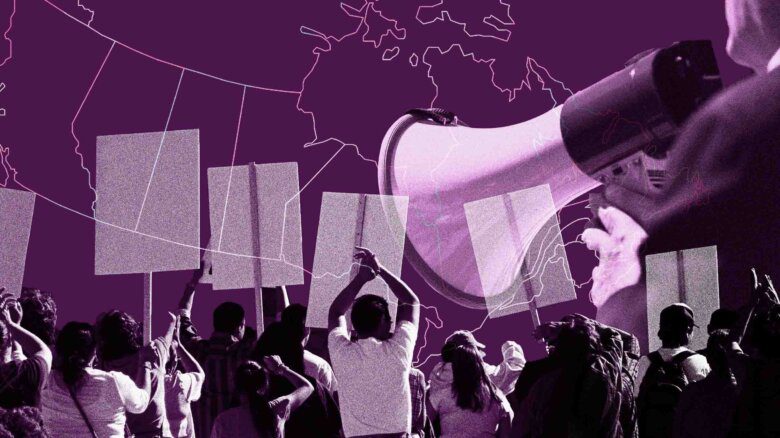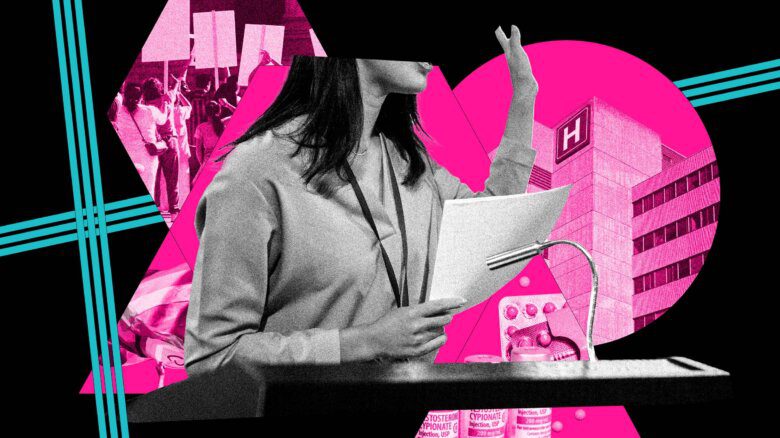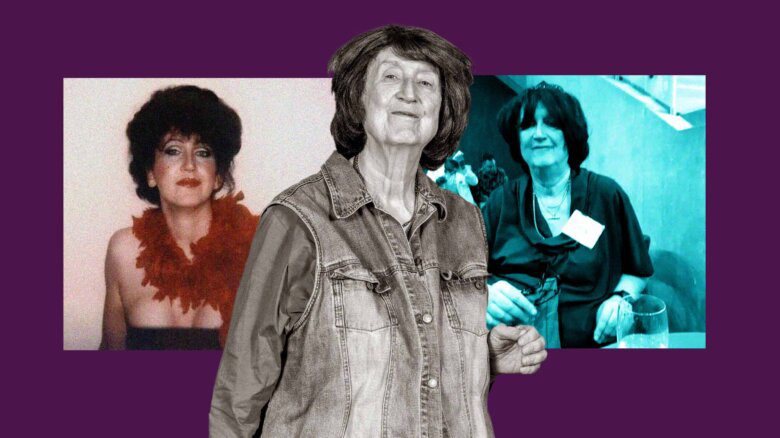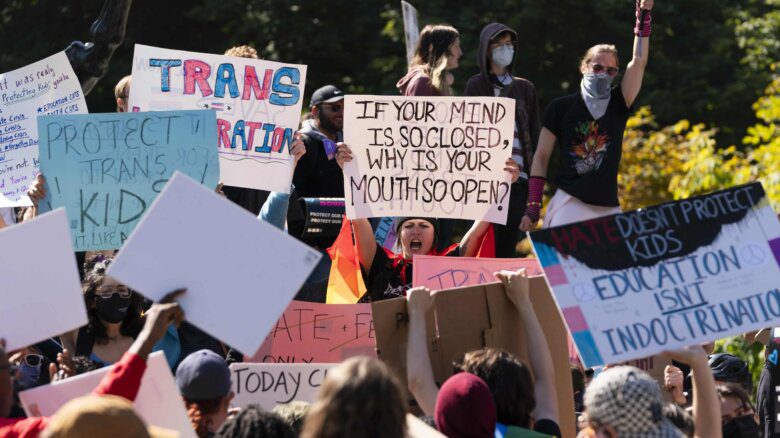Each year, Pride season passes by in a haze of rainbow-washed bank logos and corporate diversity schemes, designed for good optics rather than structural change. It doesn’t have to be that way—and hearteningly, it hasn’t always been this way.
Globally, the most groundbreaking examples of queer activism have never been solely in the service of LGBTQ+ people. Take ACT UP, the AIDS Coalition to Unleash Power, for example. Formed as governments worldwide turned their back on an epidemic that predominantly impacted marginalized people, the coalition drew attention to increased military spending, the erasure of women living with HIV and global healthcare inequalities. They fought not just for gay men in coastal U.S. cities, but for all marginalized people living with HIV across the world.
This spirit of solidarity and coalition-building is desperately needed right now, as we continue to witness what’s being described by scholars, human rights experts and a growing number of countries, including Ireland, Spain and South Africa, as the genocide of Palestinian people. It’s worth a reminder that the term “pinkwashing,”—often used as a catch-all to describe the commercialization of Pride, rather than the term “rainbow-washing,” which is more specifically about corporatization—was coined in 2011. Initially, it was a term used to describe the Israeli government, which branded the country as an LGBTQ+ haven to distract from the violent military occupation of Palestinian territories.
Increasingly, we understand that the struggles of marginalized communities worldwide are connected. Anti-gay laws exist because colonial missionaries in wealthy, Western countries exported them, wiping out rich histories of gender diversity in the process. Trans and reproductive justice movements are bound by the policing of bodily autonomy. The still-rising power of capitalism is an oppressive force that binds so many of us, strengthening global income inequality and continuing the world’s acceleration into climate burnout.
These analyses are still desperately relevant, because the status quo is maintained if we stay divided. Queers for Palestine is a timely example; pro-Israel commentators routinely describe us as “chickens voting for KFC,” an argument rooted in the myth that Palestinian people are inherently homophobic and that queer Palestinians simply don’t exist. These statements are built to divide us. In essence, they ask us to turn our backs on a population being bombed out of existence, simply because they hypothetically wouldn’t support us. Does that mean they deserve to die?
This is just the latest in a series of high-profile examples of solidarity-building in queer movements. We speak of Pride’s commercialization, but it’s worth looking back through queer history to spotlight the movements that stood in solidarity with all marginalized people. Pride was borne of liberatory politics, but these are too often drowned out by corporate messaging and the fact that minor victories—namely, same-sex marriage—have benefitted small pockets of LGBTQ+ communities, those who are Western, white, cis and middle class. We’re encouraged to think through a single-issue lens, to ignore the fact that queerness is vast and multifaceted, that queer liberation must be anti-racist, anti-discriminatory, in all ways. The groups, movements and coalitions spotlit here intrinsically understood that queer liberation meant liberation for all.
The Homosexual Front for Revolutionary Action (FHAR)
As the streets of Paris burned in the late 1960s, radical feminists and LGBTQ+ activists were sowing the seeds of social revolution. It was in 1971 when these movements truly united, forming the FHAR—the Homosexual Front for Revolutionary Action.
As well as advocating for the rights of women and LGBTQ+ people, the group was firmly anti-capitalist and rooted in protection of the working classes. “We are homosexual workers,” reads an extract from a surviving pamphlet, which advocates for workplace protections of marginalized groups. “For those who are fed up of this fucking Judeo-Christian, bourgeois capitalist civilization,” the text reads, “we have no alternatives other than resignation or revolt.”
Active for just a few years, from 1971 to 1974, the FHAR dragged up, stripped naked and wrote tongue-in-cheek texts, with protest slogans like “Workers of the world, masturbate!” and “Our asshole is revolutionary.” Members denounced worker exploitation and marched at pro-choice protests, fighting for sexual freedom and the rights of the working classes. Eventually, it was a combination of in-fighting, lesbian exclusion and state censorship that led to the FHAR disbanding, but its fusion of socialism, playfulness and structural analysis offers a glimmer of inspiration for today’s movements.
COYOTE
In 1970, Margo St. James found herself living side by side with lesbian, feminist and anti-racist organizers when she moved to Northern California’s Marin County from San Francisco, where she had spent most of the previous decade
As a sex worker, St. James had witnessed violent policing, gross injustice and the plights of stigmatized workers, so when she formed COYOTE—Call Off Your Old Tired Ethics—in 1973, she wasted no time in establishing bail funds and self-defence classes. COYOTE gathered support from marginalized activists of all descriptions: from gay and lesbian groups to a San Francisco chapter of the anti-racist White Panthers, St. James worked in coalition with others to advocate for the decriminalization of sex work.
Between 1974 and 1979, the Hooker’s Ball—a gloriously hedonistic fundraiser—was one of San Francisco’s hottest tickets. Drag queens performed comedic stripteases; porn stars swanned around the historic Glide Memorial Church, a meeting place for Black Panthers and radical queer groups, like San Francisco’s Vanguard, made up of homeless queer youth and street sex workers. The Hooker’s Ball was a truly inclusive event—nobody was turned away due to lack of funds—and it embodied the radical ethos of COYOTE, which was rooted firmly in solidarity.
Treatment Access Campaign
In late 1998, South African activist Zackie Achmat publicly mourned the death of his dear friend and long-time comrade, Simon Nkoli, a renowned gay activist who died of an AIDS-related illness. Both Achmat and Nkoli were anti-apartheid revolutionaries, and both had been diagnosed with HIV, and then ignored by a government that had long refused to even name the virus. The treatment that did exist was wildly unaffordable. Galvanized by grief, Achmat made it his mission to change this, forming the Treatment Access Campaign (TAC).
Achmat continued to protest, famously refusing to accept life-saving medication while others living with HIV were barred from doing so due to poverty. The TAC drew links between global healthcare inequalities, as well as the capitalist greed making medications inaccessible.
Through tireless work, members managed to make generic alternatives to branded drugs available, lowering their cost significantly; before long, they had teamed with activists from more than a dozen other African countries, forming the Pan-African Treatment Access Movement (PATAM), which still exists today. Driven by a fusion of grief and rage, Achmat led a movement that cracked open the assumption that HIV is just a gay issue, exposing global inequalities in the process.
Argentina’s “Green Wave”
In April 2018, a trans man—journalist Tomás Máscolo—wearing a green bandana around his neck, was featured on the cover of a supplement magazine for Argentinian newspaper, Página 12. The bold, black text superimposed over his portrait translates to: It’s me, I had an abortion.
Argentina’s reproductive justice movement—known as La Marea Verde, or the Green Wave—gained traction in the early 2000s, but as the struggle for legal abortions continued, there were calls from within the movement to diversify. The 2021 documentary Our Bodies Are Your Battlefields depicts the solidarity shown by trans women, who explained that they understood exactly what it meant to be stripped of bodily autonomy. In the late 2010s, thanks in no small part to journalists like Máscolo, trans men began speaking out, forming groups like the Trans-Masculinities Front.
It’s all too easy for movements to shy away from critique, and for mainstream commentators to write op-eds that scapegoat trans communities, arguing that medically inclusive language is somehow stripping women of language to describe themselves. In Argentina, by contrast, spotlighting the experiences of trans and non-binary people actually added nuance to debates around reproductive justice, effectively broadening the scope of the movement. It wasn’t just about abortion; it was about autonomy. Drawing these links between marginalized communities isn’t just inclusive, it’s smart, and effective—in 2020, abortion in Argentina was legalized.
Movements like these offer historical proof that queer activism is multifaceted, and deeply rooted in broader justice movements. Now more than ever, we need robust, structural analysis, which highlights the fact that so many of us are being downtrodden by the same systems: capitalism, imperialism, criminalization and broken justice systems.
This is especially true while Israeli soldiers are waving Pride flags on Palestinian land, as if the presence of gay military fighters should stop us questioning the ethics of a sustained, months-long attack, with a death toll of 37,000—and counting. Real change is possible when communities fight for collective liberation; when we fight for all marginalized people. Now more than ever, we can’t afford to let Pride be sanitized. When we take to the streets, we must reiterate that queer liberation means liberation for all.
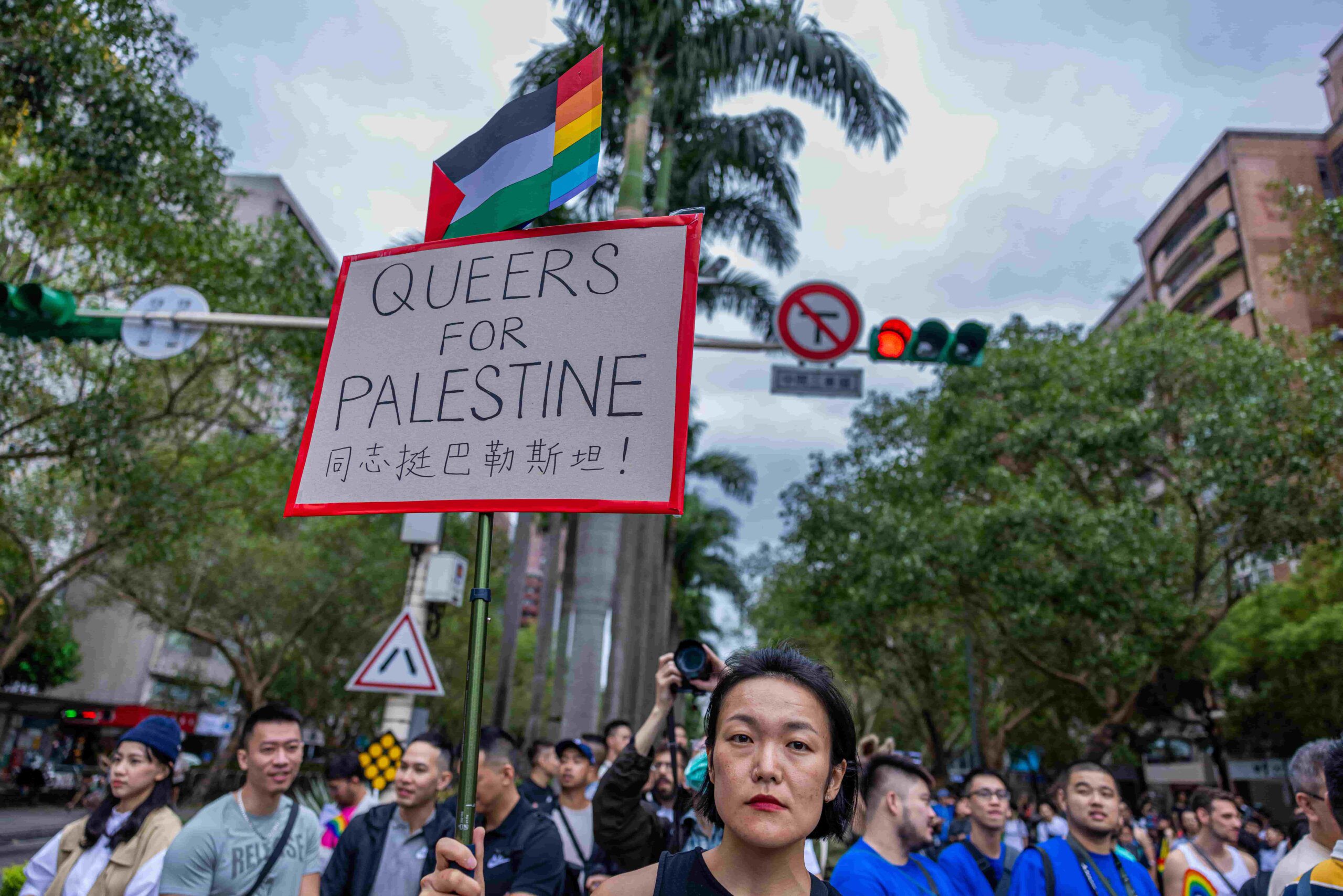

 Why you can trust Xtra
Why you can trust Xtra